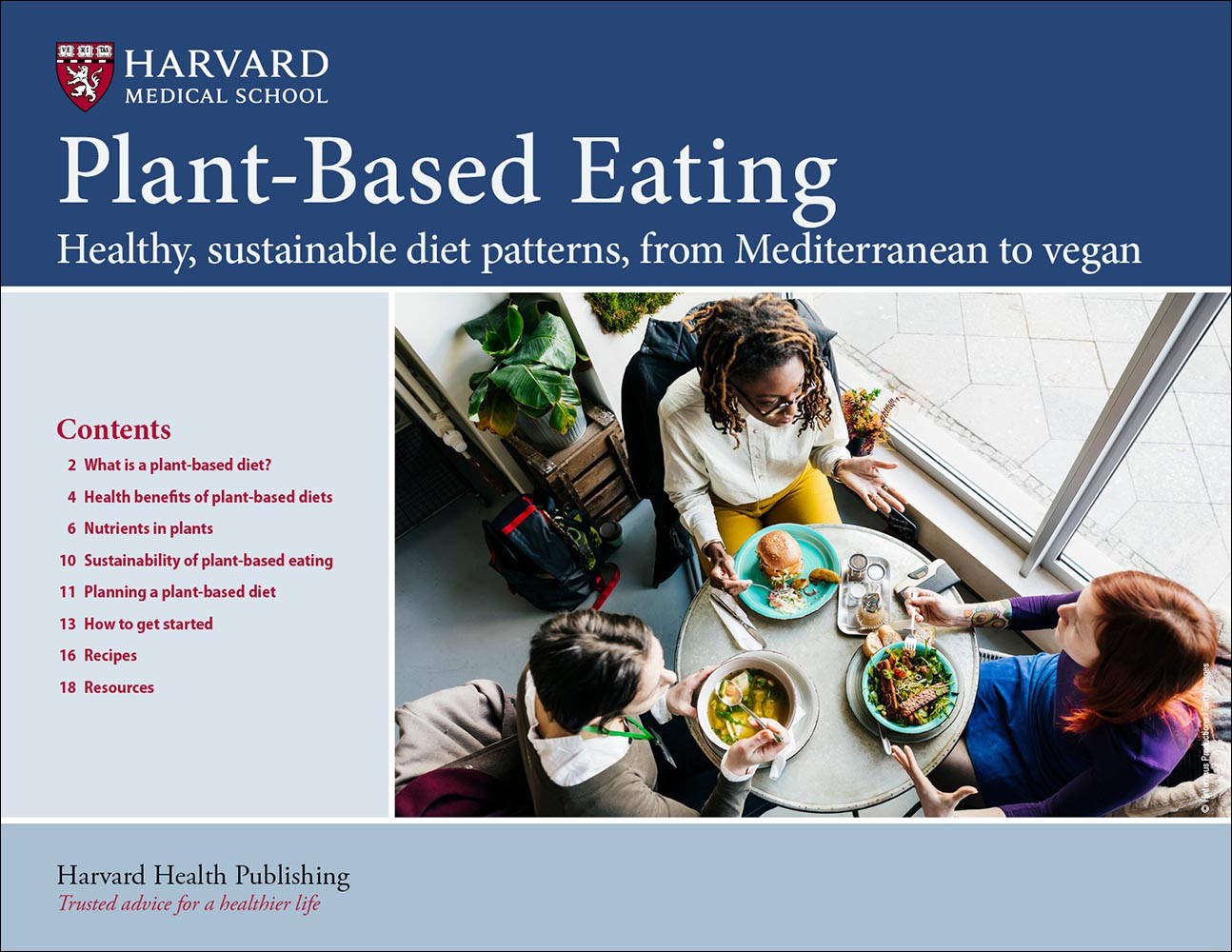Prebiotics in plant-based foods may help control unhealthy eating
In the journals
- Reviewed by Howard E. LeWine, MD, Chief Medical Editor, Harvard Health Publishing; Editorial Advisory Board Member, Harvard Health Publishing

Science has shown that a healthy gut can make beneficial changes in the brain and vice versa, via a connection known as the gut-brain axis. A healthy gut requires good amounts of probiotics (beneficial bacteria), which grow by feeding off prebiotics, compounds found in plant fiber. A new study suggests prebiotics have a role in the gut-brain axis beyond being a food source and eating them might help people choose healthier foods.
Researchers recruited 59 overweight adults who regularly followed a Western diet (higher in red meat, saturated fat, and processed foods) and assigned them randomly to take either 30 grams of inulin (a prebiotic found in onions, leeks, artichokes, and bananas) or a placebo supplement, every day for two weeks. Next, the participants had brain MRIs while they viewed pictures of various low-, medium-, and high-calorie foods and indicated how much they wanted them on a one to 10 scale. The MRIs measured how much of the brain's reward network was activated when the participants made their choices. Over a second two-week period, the process was repeated: everyone took the supplement they had not taken earlier, and then underwent the MRI session. The researchers found that after taking the prebiotic supplement, people were more likely to select medium- or low-calorie foods than high-calorie ones, and their MRIs showed less activation in their brain's reward network when shown high-calorie foods.
The results were published online Oct. 4, 2023, by the journal Gut.
Image: © OscarWong/Getty Images
About the Author

Matthew Solan, Former Executive Editor, Harvard Men's Health Watch
About the Reviewer

Howard E. LeWine, MD, Chief Medical Editor, Harvard Health Publishing; Editorial Advisory Board Member, Harvard Health Publishing
Disclaimer:
As a service to our readers, Harvard Health Publishing provides access to our library of archived content. Please note the date of last review or update on all articles.
No content on this site, regardless of date, should ever be used as a substitute for direct medical advice from your doctor or other qualified clinician.
















